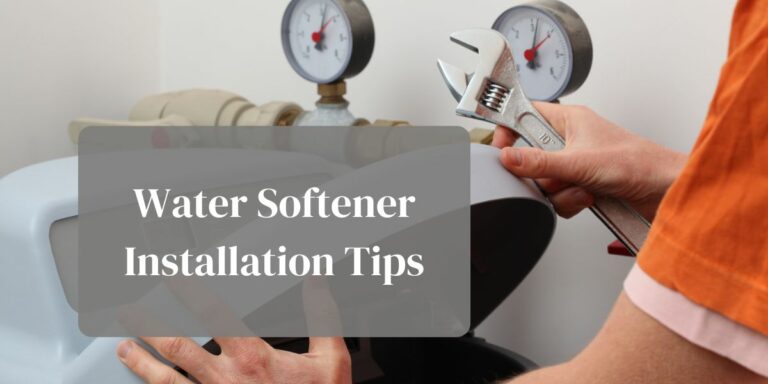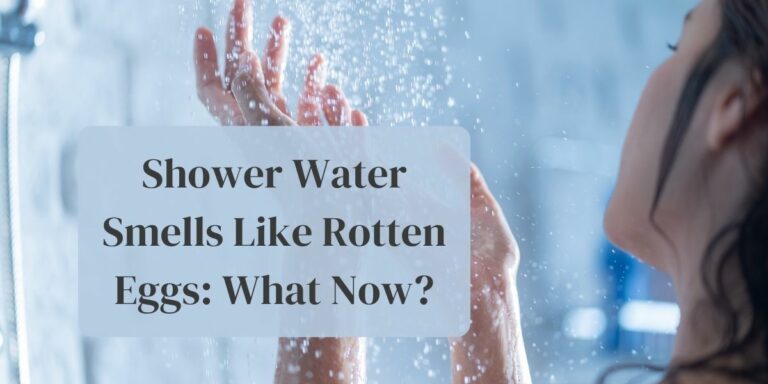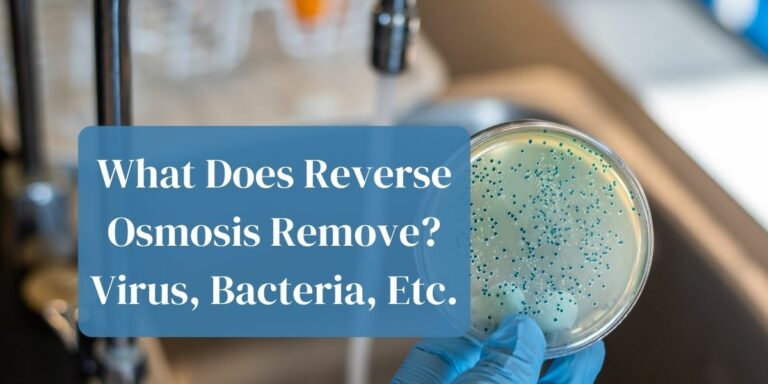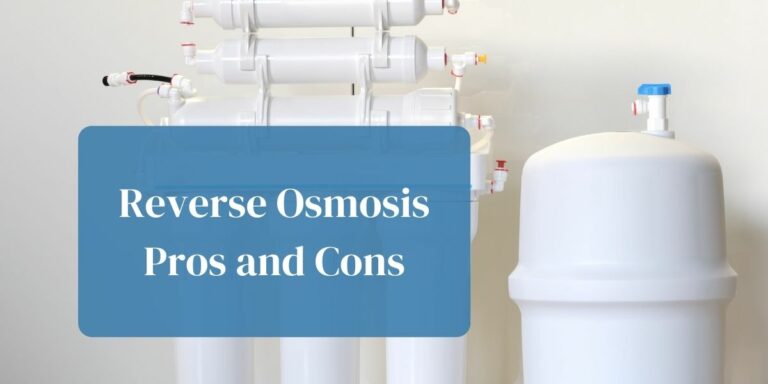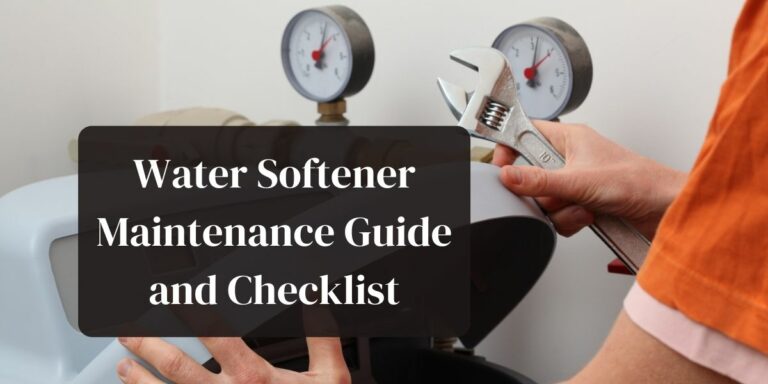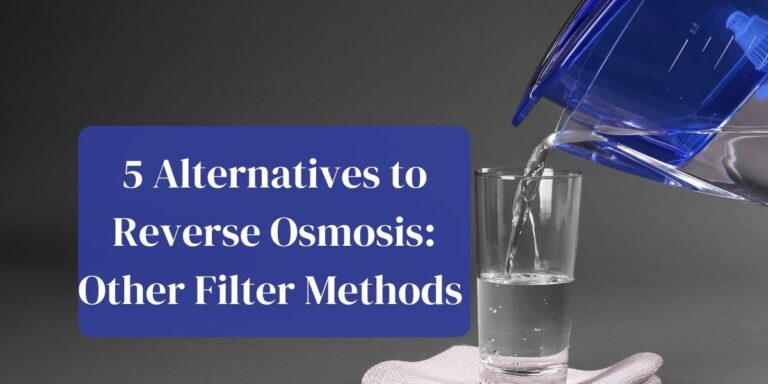Even though drinking water must meet strict criteria these days, it does not mean that you cannot encounter any unwanted smells. One of the most common unwanted smells is a chlorine or bleach smell, which certainly makes you think twice about drinking your daily glass of water. But where does this smell come from? And is there any way to remove it? Read on to find out!
Table of Contents
- What Is The Cause Of Water Smelling Like Bleach?
- How Can I Remove The Chlorine Or Bleach Smell From My Drinking Water?
- Is Water That Smells Of Chlorine Safe To Drink?
What Is The Cause Of Water Smelling Like Bleach?
While the smell of bleach in your water supply may seem alarming to you, the chances that your drinking supply contains harmful contaminants or chemical compounds is unlikely. Even though water can contain some trace amounts of chemicals, they are safe for consumption.
There can be several reasons why your water smells like bleach. One of the most common causes is chlorine. When your water has high levels of chlorine, it can cause this distinctive bleach or chlorine smell.
The levels of chlorine found in your drinking water are not harmful, but they can smell and taste unpleasant. The chlorine is added to the water for a specific reason, as the environmental protection agency requires chlorine to be added in order to disinfect the water. Therefore, the chlorine actually makes the water safe to drink.
Of course, there are levels of chlorine that can be harmful. If you want to test the water, the chlorine in the water should be under 4 milligrams per liter. A chlorine smell is usually detectable from 1 milligram per liter.
- 17 IMPORTANT PARAMETERS: The Varify Premium Drinking Water Test Kit offers an unrivaled, complete analysis of your drinking water by testing for 17 essential parameters. This includes crucial tests for chlorine, fluoride, lead, iron, bacteria, and more, ensuring that you're fully informed about the quality of your water. With this extensive range of testing capabilities, you can detect contaminants and imbalances that could affect your health, providing a holistic view of your water's safety.
- PREMIUM QUALITY: Varify stands out with its professional-grade quality, ensuring that every test strip in the kit meets the standards of precision and reliability. Crafted with meticulous attention to detail, this kit is designed to provide you with a dependable and thorough analysis of your water's composition.
- EASY TO USE: Varify's water test strips and Bacteria Test kits feature a user-friendly, color-coded system for quick and precise water quality assessments. With clear color changes indicating various parameters, these strips make complex data easily understandable, ensuring you can evaluate your water's safety effortlessly in just minutes.
- ACCURATE AND RELIABLE: Varify's water test kit comes with 100 strips in 5 separately sealed pouches (20 strips each), preserving freshness and extending shelf life for dependable testing. It also includes 2 easy-to-use bacteria tests that deliver results in 48 hours, ensuring thorough and accurate assessment of your water's safety and cleanliness. This design ensures precision and convenience in monitoring your water quality.
- WATER TESTING KITS THAT GIVE BACK: With every Varify test kit, not only do you secure the safety of your drinking water with our precise and easy-to-use testing solutions, but you also contribute to a global cause. A portion of proceeds goes to Water For Good, fighting water poverty in Central Africa. This means each test not only brings peace of mind to you but also supports #CleanWaterWorldwide, making a real difference in communities in need.
How Can I Remove The Chlorine Or Bleach Smell From My Drinking Water?
There are several ways to deal with the chlorine smell. One of the simplest ways is leaving a supply of water in the refrigerator for a little bit. You can also boil the tap water to remove the bleach smell from it.
If you are concerned with the strength of the bleach smell coming from your tap, you can also call your local utility company. Since you have zero input on how much chlorine is put in your tap water, you can always contact the company responsible to discuss the problem you are having.
Nowadays, you can also obtain so-called dechlorination tablets. These tablets come in various strengths. Some of them can even remove chlorine in as much as 100 gallons of water; this through the use of a single tablet.
Some homeowners use the trick of the vitamin C tablet. Vitamin C tablets are known to neutralize chlorine in the water as well. So, if you cannot find any dechlorination tablets nearby, try some vitamin C tablets instead. Still, you must be prepared for the fact that this will add vitamin C to the water.
One of the most effective ways to remove the chlorine smell from water is still a carbon filter. Carbon filters have the ability to absorb chlorine, leaving you with clean smelling water.
When you purchase a water purifier, which we will mention in a little more detail below, it is most likely equipped with a carbon filter or a so-called UV filter. Purifiers such as this are more found in office environments than home environments; this has something to do with their overall cost.
Finally, you can also invest in a water purifier, which filters your water and removes contaminants from it. While this might be a considerable investment, it eliminates having to contact the utility company or buying large supplies of tablets to get your water smelling clean. Remember to clean your fridge filter too!
Is Water That Smells Of Chlorine Safe To Drink?
As we mentioned earlier, the bleach smell of drinking water is usually not harmful. As long as the chlorine levels are below 4 milligram per liter, you can drink tap water safely.
Since the addition of chlorine is a vital part of making water safe for consumption, there is no way to truly avoid it. Chlorine is actually necessary to remove any remaining bacteria, viruses, and even parasites from your drinking water. Therefore, not adding chlorine would be more dangerous than not.
Some homeowners have chlorinated water that smells stronger than others, and this comes down to how much chlorine has been added by the water supplier.
For example, if the level exceeds 1 milligram per liter, then a chlorine smell is likely. When someone lives some distance away from the water supplier, it is not uncommon for the supplier to add a higher level of chlorine; this to ensure that the water is still free of bacteria and viruses when it reaches you.
So, the short answer to the question is yes, it is safe to drink. Notwithstanding, a lot of people find the smell and taste of chlorine bothersome. If this is the case for you, you can use one of the water treatment solutions above.




